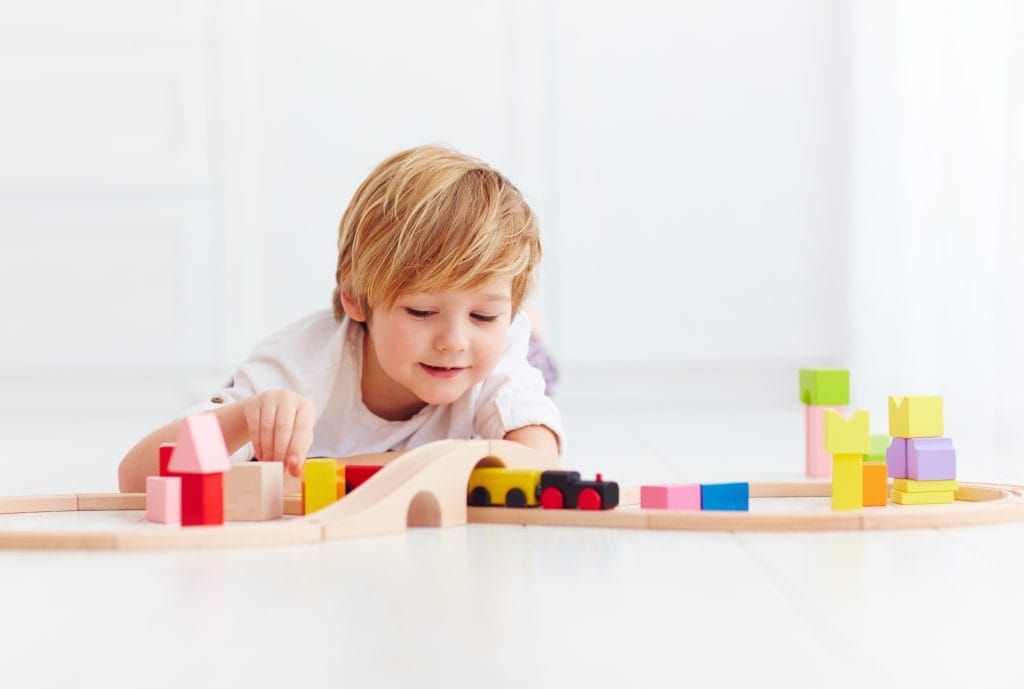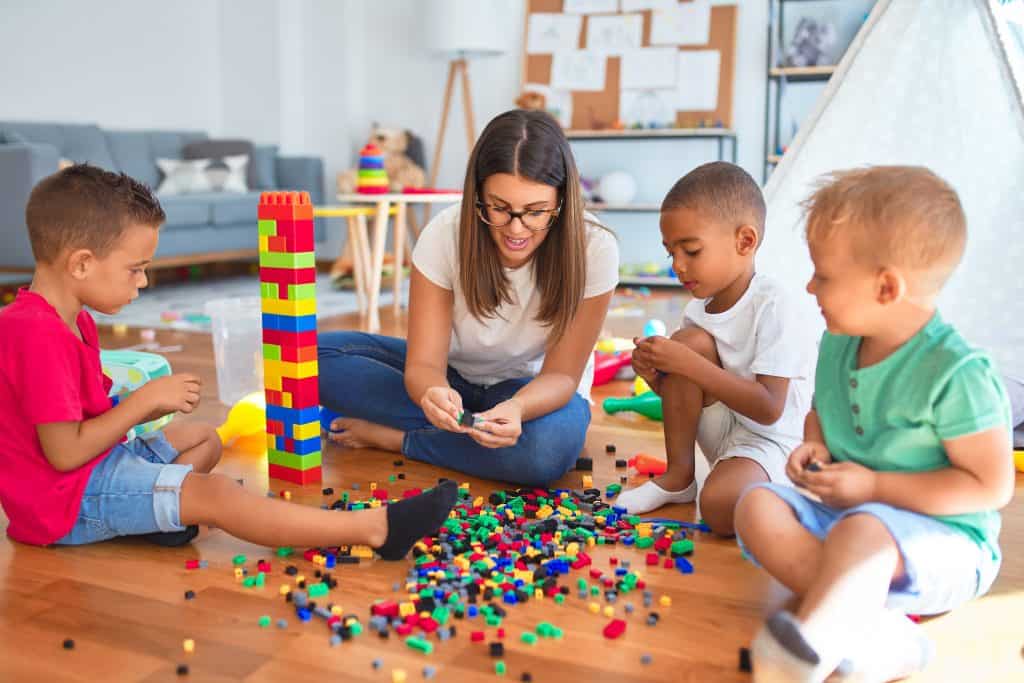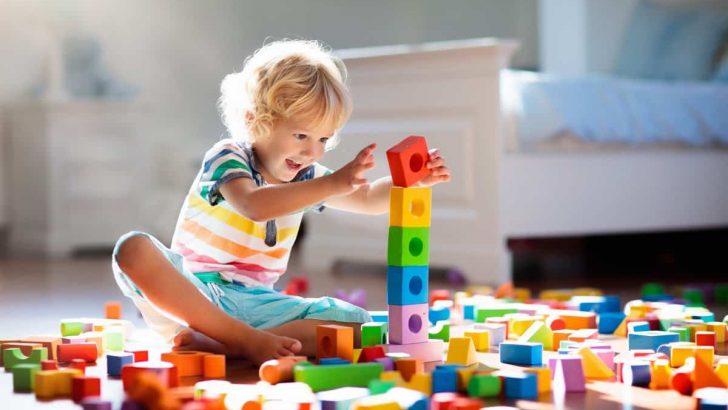Before becoming a mom, you did a lot of research on different parenting styles.
You probably even made a list of behaviors that were acceptable to you.
In fact, I can imagine you writing down that your child won’t use a cell phone until he’s ten or that you’ll never punish him.
Then you became a mother and a lot of things changed.
You realized that your image of parenthood differed from reality.
Yes, positive parenting is great, but it’s not that easy to put into practice.
Of course, punishing your child can be traumatic, but when he’s broken his bed after you’ve repeated ten times not to jump on it, it becomes unavoidable.
It’s great to prepare for parenthood.
But nothing can prepare you better than parenthood itself.
Then you understand that you’re constantly forced to adapt.
You have to adapt to the environment, to society, to your child’s character and to your own schedule.

It’s easier to raise one child when you’re a housewife with a husband who works and earns a good living than it is to raise three when both parents work.
The stress, obligations and responsibilities are completely different.
What these two situations have in common is that, as a mom, you want to do your best to raise a happy child.
And there’s no shortage of advice.
Between your friends with older children, your parents and the Internet, you’ve got it covered!
Everyone has an opinion, even if you didn’t ask for it!
So it’s hard to sort out the really useful advice from the modern tricks of the moms who have nothing to do but invent new parenting styles.
As the mother of three children, I understand what you’re going through.
For me, it was always clear that I wasn’t going to listen to anyone.
I wanted to find my own way, my own way of managing my family.
Of course, I’ve made tons of mistakes.
I’m not perfect!
But at least I don’t hide behind terms like “gentle parenting” to explain why my child is badly behaved or why he spends his time terrorizing his classmates.
I’m not a hypocrite.
I take responsibility for the mistakes I make!
That’s why I’m going to give you 10 pieces of counter-advice that will be far more effective than anything you’ve heard so far.
Counter-advice no. 1: not everything has to be educational

The advice you’ve probably heard a hundred times is: everything your child does must have an educational aspect.
But why?
Why do we force children to do a thousand things after school?
Why does every toy they buy, every outing they take, every cartoon they watch have to teach them a life lesson?
Our children are not animals to be trained.
Every activity you do with your child shouldn’t be designed to teach him something.
I see mothers teaching their 18-month-olds the letters of the alphabet.
But why?
Far too many parents are obsessed with the idea that their child is dumber than the neighbor’s, or less accomplished.
Let the children play in peace!
They’ll have plenty of time to learn everything they need to learn.
Counter-advice no. 2: children’s parents are not their teachers

The advice you’ve probably heard a hundred times is: as a parent, it’s your duty to teach your child everything he needs to know!
In correlation with the previous point, know that you are your child’s mother, not his schoolteacher.
You’re not obliged to spend your time teaching him anything.
Besides, teaching children through direct instruction is the rarest form of learning in human history.
Children can learn in other ways, notably through observation.
And they’re incredibly good at it.
All you have to do is adopt the behaviors you want your child to follow.
You’ve probably noticed that children learn swear words incredibly quickly.
Well, they hear them from adults and repeat them.
No mother in the world ever sat in front of her child and taught him how to say swear words.
The same goes for everything else.
Counter-advice No. 3: Always entertain your child

The advice you’ve probably heard a hundred times is: it’s up to you to keep your child entertained so he doesn’t get bored.
It’s perfectly normal for your child to be bored from time to time.
Sure, you can play with him, go for a walk or draw.
But you don’t need to constantly entertain him with new activities.
Boredom is essential if children are to learn for themselves how to occupy their time.
This way, he’ll turn to the activities he enjoys most, discover the world and even learn new things.
You don’t have to be at your child’s mercy.
After all, you’re his mom, not his nanny.
Counter-advice No. 4: Let your children settle their own conflicts

The advice you’ve probably heard a hundred times is: protect your children from false friends and arguments.
Hmm…
How is he supposed to learn the difference between a good friend and a bad one, if you make that choice for him?
How is he supposed to learn how to solve a problem if you’re constantly interfering?
Children need to experience conflicts, such as disagreements and arguments with their peers.
It’s part of their personal development.
So try not to interfere so they can learn to resolve them themselves.
Otherwise, you’ll soon end up with a teenager who’s completely withdrawn and introverted.
And you know what the main consequence is?
He’ll be abused, but he won’t tell you about it and he’ll never solve the problem, because you haven’t given him the opportunity to learn how.
Counter-advice no. 5: don’t eliminate negative emotions

The advice you’ve probably heard a hundred times is: children need to grow up in a positive environment, and you need to protect them from negative emotions.
Again, no!
Negative emotions shouldn’t be avoided, because children need to learn how to deal with them.
A completely carefree childhood without emotional challenges is not a good preparation for life.
Of course, you need to be there for your child when he’s going through a difficult time.
You can even give him advice.
But you shouldn’t surround him with a bubble of positivity, and you shouldn’t solve all his problems.
If you do, your child will grow up unable to manage his or her own life, and will be easily manipulated.
Counter-advice no. 6: you’re not your child’s friend

The advice you’ve probably heard a hundred times is: it’s important to create a strong friendship with your child.
If I wanted friends, I’d have found some.
I didn’t make children to have friends.
I’m their mother, not their cool, silly friend.
Sometimes being a strict or boring parent is the best thing you can do for your child.
Indeed, it’s important for your child to understand that you’re not on the same level.
You are the parent, the authority figure, the person responsible for raising another human being and keeping her alive.
Your child needs to make friends his own age who understand him and with whom he can play silly buggers.
This doesn’t mean you should be cold to him or that you shouldn’t build a strong emotional relationship.
It’s just that there are some behaviors and conversations that should be reserved for parents, and others that should be reserved for friends.
Counter-advice no. 7: your life shouldn’t revolve around your child

The advice you’ve probably heard a hundred times is: your child is the center of your universe.
Your life and your schedule don’t have to revolve around your child’s wishes.
The wishes of other family members count too.
Your child will be perfectly content when he or she participates in adult activities.
Of course, when your child is a baby, it’s perfectly normal for his or her needs to be a priority.
But as soon as your little one is able to express himself and say what he wants, you have to teach him that time must be divided equally between all members of the family.
And that everyone’s needs must be met.
Especially Mom’s, as she’s the conductor of the whole family.
Counter-advice no. 8: don’t buy toys every time you leave the house

The adviceyou’ve probably heard a hundred times is: to make sure your child doesn’t feel left out, he or she should always have the latest toys.
Children can literally play with anything.
Think back to last Christmas.
How long did your child play with the toy?
How long did he play with the box?
At my house, the Christmas toys are already broken, while the boxes are still being used as cages for mini-football.
What’s more, satisfying children’s every wish is a bad idea.
They become arrogant, ungrateful and selfish.
This creates problems in adolescence, when phones and other super-expensive technologies replace inexpensive toys.
Counter-advice no. 9: children should take part in household responsibilities

The advice you’ve probably heard a hundred times is: children’s only responsibility is to play.
Playing is great!
I’d love to spend my days playing, reading and drawing too.
But in the real world, that’s not possible.
We all have responsibilities, and the sooner children realize this, the easier their lives will be.
Besides, children love to imitate adults.
That’s how they learn.
Involve them in household chores and they’ll enjoy it.
Remember the frustration you felt when you moved in with your boyfriend and realized he couldn’t even turn on the washing machine?

